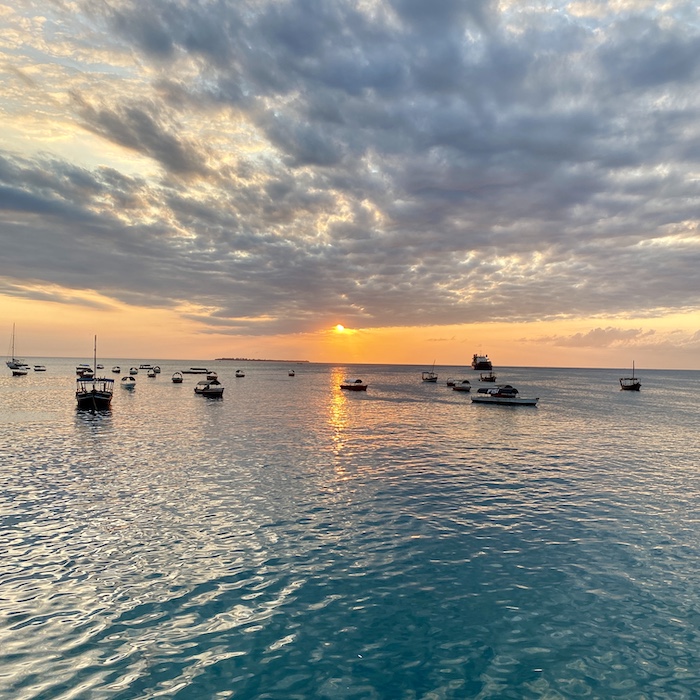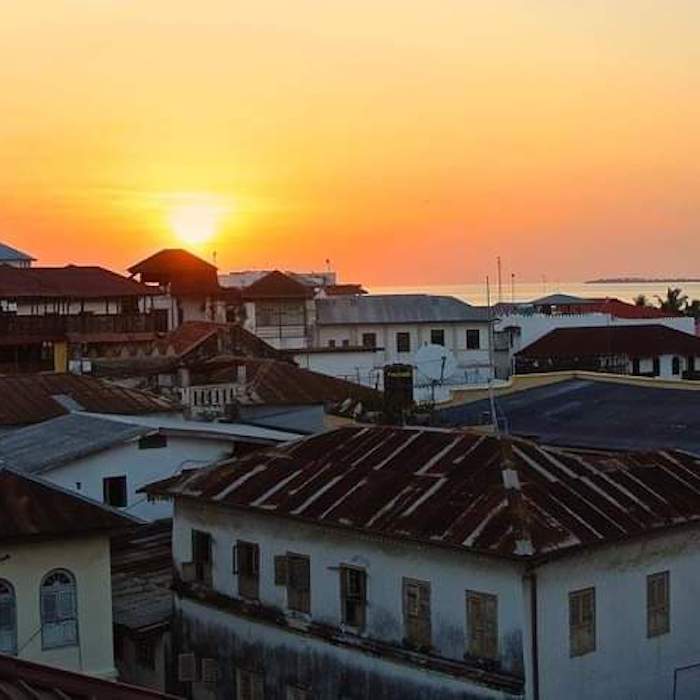Zanzibar
Your arrival ON zanzibar

Arriving on Zanzibar
You can enter Zanzibar either by plane or by ferry from Dar es Salaam. Abeid Amani Karume International Airport as well as the harbour are both located in Stone Town, approximately 50 kilometres, 1.5 hour drive, from Blue Oyster Hotel.
Getting to Jambiani
We offer transfers with Kemi Tours and Travel from all over the island to Jambiani. From Stone Town it takes approximately 1.5 hour to get here, and from the north of the island, Nungwi or Kendwa, it takes around 2 hours.
Driving & Car Rental
It is also possible to start your journey by renting a car. This can be arranged directly from the airport or the harbour through various car rental agencies. Driving on Zanzibar is on the left side of the road. Please keep in mind if you do want to drive that you need a Zanzibar Driving Permit, which can be arranged by the car rental agency, costing around $15.
General information
Currency
Tanzanian Shilling (TZS) and
United States Dollar (USD)
Time zone
3 hours ahead of GMT
2 hours ahead during Summer Time
language
Kiswahili and English
Visa requirement
Read more here
Dress code and code of conduct

Dress Code
- Wear loose fitting, non-transparent clothes
- Shirts should cover the upper arms
- Shorts should reach to the knees
- Do not wear swimwear, tank tops or other revealing clothing in the villages or in Stone Town
- Beachwear is for the beach only!
- Topless or nude sunbathing is NOT permitted anywhere on Zanzibar
Code of Conduct
- As a general rule, never take any pictures of children!
- Do not take photos or videos of people without kindly asking them first
- Public consumption of alcohol is not permitted – except in hotels, bars and restaurants
- Public display of affection, such as kissing and holding hands, is considered offensive
culture and history

Zanzibar is an autonomous part of Tanzania, a republic formed in 1964 between Zanzibar and Tanganyika.
The residents of the islands are an ethnic mixture of many different cultures like African, Arab and Persian. More than 95% of the population are Muslim, followed by many other religions such as Christianity and Hinduism.
Kindly, note that from our hotel you will hear the beautiful sounds from the early morning prayers along with the other daily prayers taking place, as the local mosques call out for prayer through loudspeakers.
The variety of cultures is expressed the most in Zanzibar’s Arabic influenced city – Stone Town, which was declared a World Heritage site by UNESCO. Other than the city, the archipelago is famous for the beautiful white sand beaches, spice farms and Freddy Mercury.
To learn more in depth about the history of the island, we highly recommend to reserve a guided Stone Town tour with us.
Weather and location

Zanzibar is an archipelago consisting of two bigger islands – Unguja and Pemba, and 50 smaller islands and sandbanks. The islands are surrounded by the Indian Ocean, located around 25 kilometres from the Tanzanian capital, Dar es Salaam, just south of Equator.
The climate is tropical with hot weather all year round, and slightly cooling off during the two rain seasons. The main rain season is from March to May, while the other rain season is from mid October to start December.
The temperatures are the highest from October to March, ranging between 27-34˚C, and the lowest from May to August when the highest temperature is between 25-28˚C.
The Indian Ocean at the Zanzibar coast is always warm for you to enjoy it, with water temperatures ranging from 25.5˚C to 27.5˚C in August and September to 28.5˚C to 29.5°C between December and March.
Ocean tides are very important for the local communities, as they provide the opportunity for local women to tend to their seaweed farms. The difference between tides is the biggest during the new moon and full moon. However, the tides are changing every day with approximately 6 hours between the highest and lowest water level.
Zanzibari Cuisine

Zanzibari cuisine reflects several influences as a consequence of the multi-cultural and multi-ethnic nature of Zanzibar’s heritage. Therefore, it is a mixture of various culinary traditions including Bantu, Arab, Portuguese, British, Chinese, and Indian, which has resulted in a truly unique cuisine and unforgettable flavors. The spices from middle East and India, paired with the fresh natural ingredients grown on Zanzibar and the access to fresh fish and seafood, makes the Zanzibari cuisine irresistible. For a unique insight into the local culture and cuisine, we offer a special Spice Tour that includes a local Swahili cooking class, where you will try yourself to cook the most delicious dishes of the Zanzibari kitchen.
Here are some of the local dishes you have to try:
- Pilau Rice (rice cooked with various spices, possible with beef, chicken, fish or vegetables)
- Biryani (cooked rice served with a very flavourful sauce full of different spices, normally with pieces of beef or chicken)
- Urojo (a truly unique breakfast dish! A mix of boiled eggs, tasty bhajias and other crispy fritters paired with a curry mango soup served with a spicy chili sauce)
- Zanzibar Pizza (folded dough filled with ingredients of your choice, can be sweet or savory)
- Mishkaki (skewers of chicken, fish or beef)
- Chips Mayai (omelette with french fries)

